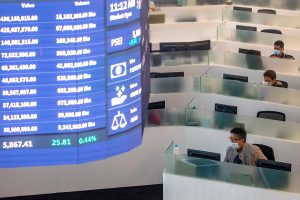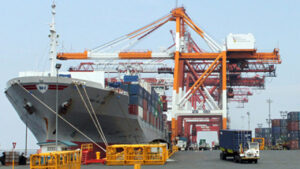By Revin Mikhael D. Ochave, Reporter
THE Securities and Exchange Commission (SEC) wants large nonlisted entities (LNLs) to adopt sustainability reporting alongside publicly listed companies (PLCs).
On July 30, the corporate regulator released a notice inviting feedback on a draft memorandum circular (MC) that outlines sustainability reporting guidelines and a roadmap for adopting Philippine Financial Reporting Standards (PFRS) on sustainability disclosures and reporting for PLCs and LNLs.
Interested parties may submit their comments and proposed revisions until Aug. 15. All PLCs are mandated to file annual sustainability reports under SEC MC No. 4 issued in 2019.
“This initiative forms part of the commission’s broader strategy to institutionalize sustainability reporting, strengthen environmental, social, and governance (ESG) accountability, and enhance the quality and comparability of non-financial disclosures in the Philippines,” the SEC said.
“The sustainability reporting guidelines and roadmap for PLCs and LNLs serve to encourage sustainable business practices and align company disclosures with international standards to attract ESG-focused investors to the Philippine capital market,” the SEC said.
Beginning 2026, the covered entities must use PFRS S1, General Requirements for Disclosure of Sustainability-related Financial Information, and PFRS S2, Climate-related Disclosures, in a tiered approach depending on the market capitalization of PLCs or the annual revenue of LNLs.
Tier 1 covers PLCs with a market capitalization of over P50 billion as of Dec. 31, beginning on or after Jan. 1, 2026, with reporting to start in 2027.
Tier 2 includes PLCs with a market capitalization of over P3 billion up to P50 billion as of Dec. 31, beginning on or after Jan. 1, 2027, with reporting to start in 2028.
Tier 3 comprises PLCs with a market capitalization of P3 billion or less as of Dec. 31, and LNLs with annual revenue of over P15 billion for the immediately preceding fiscal year, beginning on or after Jan. 1, 2028, with reporting to start in 2029.
The draft MC also provides transition reliefs and phased mandatory limited assurance on Scope 1 and 2 greenhouse gas emissions.
“The draft MC applies only to entities under the regulatory jurisdiction of the SEC pursuant to the Revised Corporation Code,” the SEC said.
“The commission also considered the results of the SEC’s national sustainability reporting market readiness survey. The survey assessed readiness, validated tier segmentation, and informed the design of the proposed phased implementation,” it added.
LNLs will be exempt from mandatory reporting if their immediate, intermediate, or ultimate parent company is already preparing the prescribed sustainability-related disclosures in the Philippines, and if those disclosures are included in the parent company’s report.
SM Investments Corp. Economist Robert Dan J. Roces said in a Viber message that the draft MC widens the scope of local sustainability reporting rules.
“This SEC move expands sustainability reporting to cover major firms with significant ESG footprints that had long been exempt from outside formal disclosure requirements,” he said.
“The phased rollout and gradual assurance requirement reflect a mature regulatory touch, and may help position the Philippines as a regional leader in transparency while meeting investor demand for fuller ESG data,” he added.
However, Mr. Roces said the SEC’s possible move could face compliance challenges, especially for companies that do not have the necessary resources for sustainability reporting.
“The shift could also burden firms without the reporting infrastructure of listed peers, risking compliance strain and business distortions. Hence, its success will depend less on intent than on clear rules, strong guidance, as well as enforcement,” he said.
Rizal Commercial Banking Corp. Chief Economist Michael L. Ricafort said the draft MC would help compliant companies attract more local and foreign investors.
“Global and local regulators encourage investors to patronize companies and governments that comply with ESG standards as compliance with ESG standards signal good business practices,” he said in a Viber message.


















